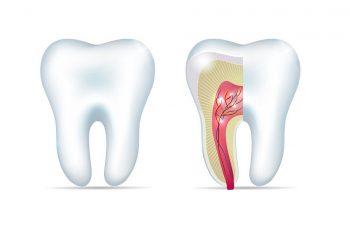How Do Cavities Form?

Most people have heard those dreaded words, “You have a dental cavity.” Fortunately restorative dentistry treatments can effectively address damage and decay to restore the health and strength of a tooth that has developed a dental cavity. While a dental cavity is far from the worst oral health problem that can be experienced, it is still best to avoid one altogether. However, while most people have had a dental cavity, many do not know how they form, so how can they effectively prevent them? When our dentists at Feather Touch Dental Care are asked “How do cavities form?” by our Atlanta patients, we do our best to ensure that they understand, not only what leads to dental cavities, but also how to prevent them.
The Formation of a Cavity
Cavities do not often result in noticeable side effects for patients, so when a patient hears that they have a dental cavity, it often seems as though the cavity has formed overnight. In truth, a cavity forms gradually and it takes quite a bit of time for decay to eat away at the tooth to the point that a hole, or “cavity,” is present in the tooth enamel. Below are the basic stages of the formation of a cavity:
- Bacteria is present: In order for a cavity to form, bacteria has to be present in the mouth. The bad news is that bacteria is always present in the mouth. The good news is, that with proper oral hygiene techniques, it is easy to keep bacteria under control and prevent it from compromising the health or structure of the teeth.
- Plaque and tartar build up: Plaque and tartar are sticky substances that can build up on the surface of the teeth. Brushing and flossing can reduce plaque, and routine dental exams and cleanings can reduce tartar. A professional cleaning is the most effective way to rid the teeth of harmful plaque and tartar.
- Bacteria builds up: If proper oral hygiene habits are not practiced, or if oral care is neglected altogether, bacteria will continue to multiply. The more bacteria that is present around the teeth and gums, the greater the risk to the patient’s oral health.
- Decay begins: If plaque and tartar are left untreated, bacteria that feed on these substances will slowly eat away at the tooth’s protective layer of enamel. The longer that bacteria are present on the surface of the tooth, the more damage they will do. Eventually, the acids emitted by dental bacteria will create a small hole in the tooth’s enamel.
Throughout the stages of a cavity formation, the best defense is good oral care. Brushing, flossing, and biannual dental cleanings are the most effective way to prevent the buildup of plaque and tartar and keep the teeth cavity-free.
Schedule an Appointment
General dentistry services are the best way to preserve good oral health and prevent complications such as dental cavities. To learn more about the full range of general dentistry services offered by our team of dentists at Feather Touch Dental Care, schedule an appointment at your earliest convenience. We look forward to hearing from you.
